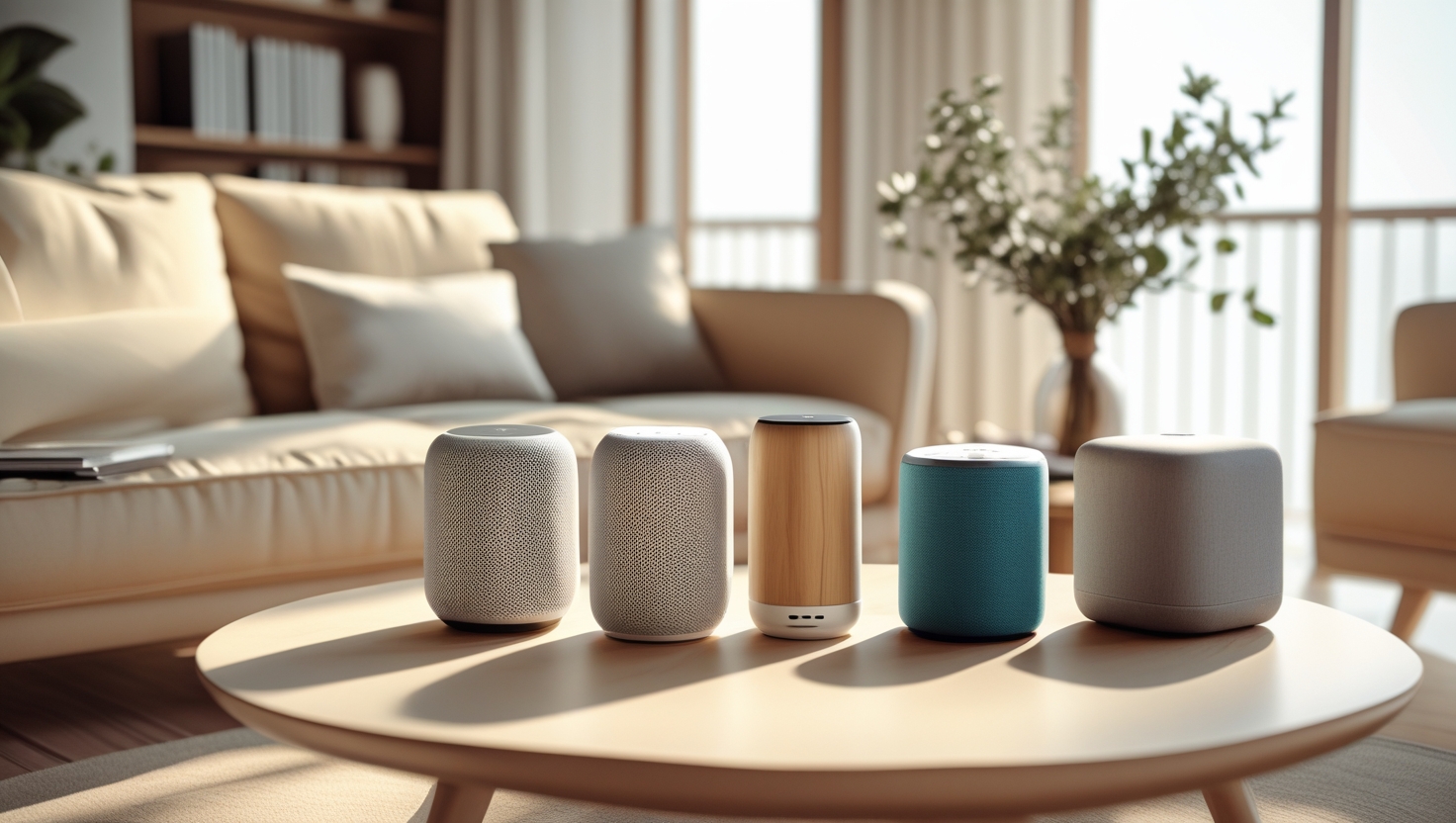Successful support may be in achieving efforts; smart speakers are gaining access to millions of households all over the world by their unique convenience and new characteristics. Controlling your lights and thermostat or playing your favorite tunes, a smart speaker can make your life simple, and you can turn your home into a smart hub. But amid so many options when it comes to smart speakers, selecting the right voice-activated device for your home can seem overwhelming. Your choice can be guided by various essential aspects that have been highlighted in this guide.
Understand Your Primary Needs
You must define what your main needs are before you look at some of the smart speakers in detail. Many of them are searching for a device that can play music, monitor their smart home, as well as perform functions that do not require looking at it, such as setting reminders or viewing the weather. Your needs can assist in eliminating you from the options.
Adjunctive Voice Assistant
If you are already using other Apple devices such as iPhones, different Macs, and even the physical Apple TVs, you may find the Apple HomePod to be the most compatible solution for you because of the perfect control over Siri that it has. On the other hand, if you are a Google user with Android gadgets or a heavy user of Google services like Google Calendar or YouTube, a Google Nest speaker will be an excellent fit. Amazon Alexa fans will find the Amazon Echo range to be a bit of a challenge, provided you’ve already bought into Alexa-powered smart home devices.
Evaluate Sound Quality
One thing to be considered about a smart speaker, especially if music is involved, is its sound quality. Normally, speakers for higher-end models are usually bigger, while smaller models may simply give up on the sound quality just to cut costs.
Speaker Size and Output Sound
Size matters with sound as well. An ornamented oversized loudspeaker features inside its dimensions a capability of bringing out more depth of sound and atmosphere, which is ideal for anyone who loves listening to quality music or enhancingthe entertainment experience. On the other hand, compact devices, including the Echo Dot or the Google Nest Mini, emit good sound for a normal home environment.
Multi Room Audio Support
For rooms where you want to listen to an audio output, you need a smart speaker that uniquely aligns with a multi-room system. For example, Amazon Echo and Google Nest speakers permit you to synchronize numerous speakers in your house in a way that lets you experience music in a single room or multiple rooms.
Check Smart Home Integration
Smart speakers can be used for much more than just responding to questions and playing music because they can take control of your smart home devices as well. Ensure that your smart lighting, security cameras, and thermostats all match up and cooperate is part of the speaker’s ecosystem.
Data Privacy Policies
Every company has a varied policy of data privacy relative to voice recordings and how they utilize your data. Amazon and Google also hold recordings for better voice technology processing, but provide the opportunity to delete your voice history. Apple’s HomePod, as part of the Apple ecosystem, seems more concerned about privacy since most data gets processed on the local device instead of on servers.
Think About Design and Placement
Smart speakers are designed to look different in shape and color combinations. Choosing a chandelier that will fit your home’s decor and is easy to install is also important.
Size and Aesthetics
Other smart speakers, such as the HomePod, are also designed to complement your home with a sleek, modernist demeanor. Some of the choices, such as the Echo Show and Google Nest Hub, also have screens and have the potential to become additional screens for both media and video conferences. Consider the way that the speaker can be introduced into your space and how its design would correlate with your furniture.
Wired vs. Battery-Powered
Such speakers may include Amazon Echo Input or Sonos Move. These could be moved from one room to another or even outside without having to worry about power outlets.
Conclusion
Before purchasing a smart speaker, you should think about such things as the needs of your home, your purchasing ability, the quality of sound you want, and how convenient the device will be to integrate with how many other smart products you already own. One has no excuse to miss out on anything anymore, no matter the kind of importance, whether sound quality, smart home connections, or privacy, as there is a perfect smart speaker for anyone. With these points taken into account and some research on your part, you will find yourself able to make an informed decision that will only improve your home experience.
Which speaker is the best for music lovers, then?
The organization of the basidium in the Amazon Echo Studio or Apple HomePod enhances the production of sound, making the music experience that music lovers enjoy so much.
Can you have smart speakers all over a house?
Yes! Now, many smart speakers can stream audio in different rooms. As an example, both the Amazon Echo and the Google Nest will allow you to play the same song or content on different speakers in different parts of the house.
Are such smart devices like this risky to your privacy?
Typically, smart speakers are safe, though you should always look at the privacy policy of each manufacturer. Most devices allow muting an inbuilt microphone and deleting voice recordings for further privacy.

